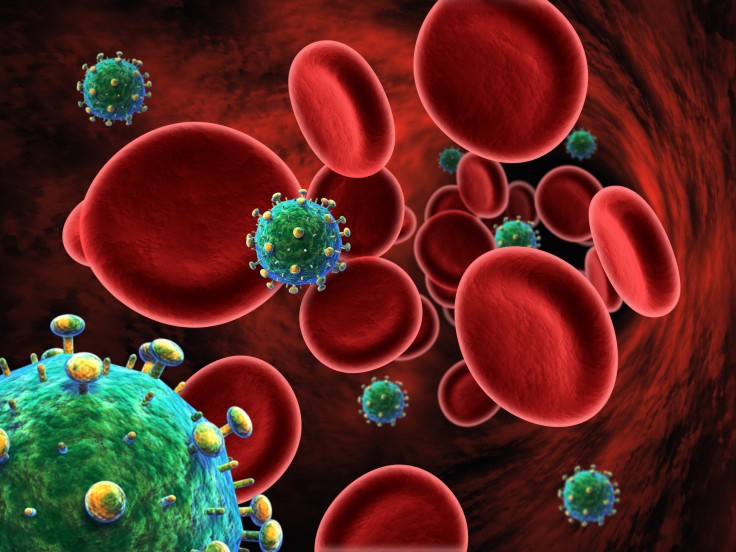HIV Loves Sugar, And Scientists Figured Out How To Starve Its Sweet Tooth

HIV builds an army that feeds off sugar, and knowing how to cut off its supply could eventually lead scientists to a long sought after cure. At Vanderbilt University and Northwestern Medicine’s HIV Translational Research Center, scientists unlocked the switch that turns HIV’s sugar and nutrient source on and off, finally halting its wild growth.
"It's a monster that invades the cell and says 'feed me!'" the study’s co-author, Harry Taylor, a professor and scientist at Northwestern Medicine, said in a press release. "It usurps the entire production line. This compound can be the precursor for something that can be used in the future as part of a cocktail to treat HIV that improves on the effective medicines we have today."
The idea for the study, which was published in the journal PLOS Pathogens, was based off of a discovery Taylor and his colleagues made in 2012 at Vanderbilt University that found breast cancer hijacks the body’s sugar source. When they cut off its source by blocking a part of the cell called phospholipase D1, researchers were able to stop the breast cancer cells from spreading. They thought they could starve HIV the same way — and they were right.
"This discovery opens new avenues for further research to solve today's persisting problems in treating HIV infection: avoiding virus resistance to medicines, decreasing the inflammation that leads to premature aging, and maybe even one day being able to cure HIV infection," Dr. Richard D'Aquila, director of Northwestern's HIV Translational Research Center, said in a statement.
When HIV is introduced into the bloodstream, it targets and attacks CD4+ T cells, which are active immune cells in charge of responding to danger. When allergies hit, for example, the CD4+ T cells feed off of sugar (glucose) and amino acids in the blood, which are used to build an army of soldiers to repair and protect the body. HIV needs to grow inside of CD4+ T cells, so it ultimately steals the cells’ sugar source in order to create an army of its own that eventually attacks other cells in the body.
Because of this, HIV patients suffer from premature organ damage and excess inflammation that researchers believe is caused by the abnormal immune cell growth. Currently, HIV medications are limited with middling success, because they can stop the HIV growth itself but are unable to slow the immune system’s reaction to HIV. However, not only was the research team able to stop HIV from replenishing its army with the cells' stores of sugar, but they did so without harming other cells.
"Perhaps this new approach, which slows the growth of the immune cells, could reduce the dangerous inflammation and thwart the life-long persistence of HIV," Taylor said. "It's essential to find new ways to block HIV growth, because the virus is constantly mutating. A drug targeting HIV that works today may be less effective a few years down the road, because HIV can mutate itself to evade the drug."
Source: Taylor H and D’Aquila R. PLOS Pathogens. 2015.



























